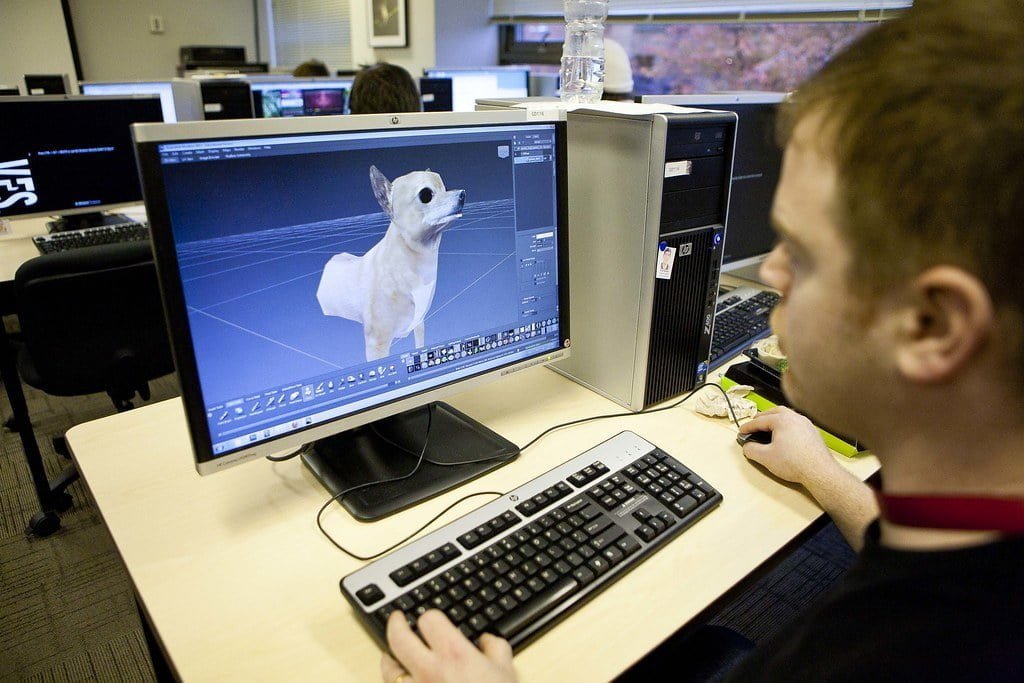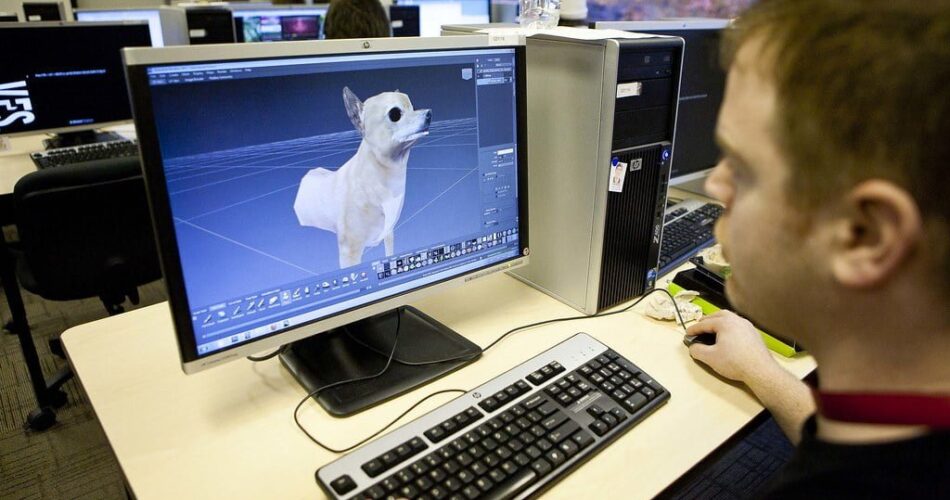There are certain things that you should know if you want to develop video games. First, the industry is extremely competitive.
A portfolio that showcases your talents is the best way to be noticed. You should have a range of projects to show your skills.

Create a Portfolio
A portfolio is an essential step towards your professional development, whether you’re a newbie or an established designer who wants to move into this field. It can demonstrate your creativity and show hiring managers that you have hands-on experience working with various types of games.
When creating a portfolio, choose projects that showcase your ability to work with different teams and technologies. Your portfolio should also include digital and non-digital examples of your skills, including handmade tabletop games or collaborative student projects.
A video of you work may be a good idea. Video portfolios can make you stand out from potential employers.
Consider a platform which makes it simple to build a website. Many platforms require very little knowledge of website design and can allow you to upload portfolio content, customize the layout and buy a domain.
It is important to make your website easy for a hiring manager to navigate so they can review the breadth of your projects. Website pages can be labeled to show your professional experience. This can include freelance or student projects as well as any awards.
Make sure you have the most current game technology in your portfolio if you’re applying for a job on an app or an Indie game. This includes Unity, Unreal Engine or Blender.
You can also include 3D models, concept art and screenshots of your work. These can be uploaded to websites that accept these files and hosted for you, such as Coroflot.
Portfolios are reviewed constantly by hiring managers and recruiters. You need to ensure that your portfolio is easily found. They may not be able to find your projects and they might move on to another applicant’s application.
One of the best things you can do to improve your portfolio is to get feedback from others on it. This can be in the form of reviews or critiques from fellow artists and designers.
Another good way to improve your portfolio is to focus on learning how to critique existing games and their flaws. Blog posts and videos can help you analyze the design of an existing game.
Apply for an Internship
If you’re interested in becoming a game developer, getting an internship is the best way to develop your skills and gain experience before taking on a full-time job. You can gain real-world experience and build your network by joining internships.
During an internship, you’ll have to collaborate with others and work as part of a team. This is a great way to learn how to work together with other people, which is an important skill for a game designer.
When working with other people, you should be able to communicate effectively with everyone involved in the project. This includes your boss, co-workers and clients. You must also be able listen to others and understand their concerns and needs.
Communication skills are essential for any business and will make you a successful entrepreneur. During your internship, you’ll learn how to clearly and effectively convey ideas and opinions.
When you are looking for a job, problem-solving skills will be a must. Whether you’re dealing with a computer glitch or a novice mistake, you’ll need to be able to figure out how to fix it.
You’ll also need to be able to take initiative and ask for help when needed. You will show that you are willing to work hard and do whatever it takes to succeed.
Determination and perseverance are other skills that you’ll need to have if you want to succeed during your internship. This is because you’ll be facing multiple challenges throughout the course of your internship and it will be up to you to find ways to overcome them.
These skills will be useful, but you also get to learn the basics of game development. These skills can help you get a job as a game developer after graduation.
The key to finding an internship is to be as honest and authentic as possible when applying. It will benefit you and give you the chance to shine. Interviewers want to see that you have a passion for your career and are capable of working under pressure.
Develop Your Skills
If you are interested in becoming a game designer, there are many skills you will need. This includes interpersonal and technical skills.
First, identify where you are lacking in skills and work on improving them. This will not only help you use your resources efficiently but also keep you motivated and focused on your goal.
You can begin by learning a programming language, like C# or Java. These are popular for games that run on PCs, consoles and mobile devices. A game engine such as Unity and Unreal Engine can be learned.
Once you’ve mastered the basics, you can start building and testing games. This will help you build a portfolio and demonstrate your skills to potential employers.
One way to get started is by enrolling in a coding bootcamp, which is an affordable and convenient way to learn the skills you need for a career in game development. You will learn the basics of design and coding, then you can apply them to real-world projects.
Once you have completed the Coding Bootcamp, it is possible to continue your education and enroll in either a Game Development Degree Program or a Bachelor’s Degree in Computer Science or Gaming Technology. This program will give you a solid understanding of all aspects of game development including game engines, software languages, and tools.
It’s also important to stay up to date with industry trends. This will help you understand the gaming market and player behavior better.
Lastly, you need to be passionate about game development. This is a competitive, fast-paced field and requires great attention to details. You can also expect to work long hours and be under pressure to meet deadlines.
A portfolio is the best way to make sure you are hired. It should showcase your talents and demonstrate your creativity. You can also network with industry professionals to find out more about job opportunities.
The game industry is a creative, fulfilling and competitive place to work. A rewarding job can be found in either a big game studio or smaller business. It is also possible to be your own boss and develop your own games.
Network
If you want to make your dream of becoming a game developer a reality, networking is one of the most important things you can do. Networking is all about building relationships and meeting new people who can help you grow as a person, in your career and in your games.
A strong network will open doors to possibilities you didn’t know existed. It can help you gain insight into the various roles and industries involved. Although it can be time-consuming and difficult to build a network, the rewards can be transformative.
There are several ways you can network, from online to in-person. Some of the most popular options include LinkedIn, video game conventions, and networking events.
LinkedIn can be a great way to connect with recruiters, senior executives, and other professionals in the gaming industry. It’s also a great place to share your experiences and portfolio, which can be helpful for future employers!
Conventions for video games are a great way to meet other gamers, and show your game. However, if you’re just starting out, it might be best to attend a smaller event first and work your way up to the big ones!
Video game conferences and conventions can help you make new friends as well as provide a platform for inspiration. These events typically have a laid-back atmosphere and allow you to discuss topics that interest you and inspire your own projects.
You can also get valuable feedback from other players at these events. It is particularly important for indie developers, because it will help you create a better game.
Another great way to network is through Discord, which is an online chatroom that allows you to connect with game development communities around the world. You can join communities based on gender, experience level, game genre, and more!
Tech leaders at gaming companies often face a number of challenges when it comes to delivering online games. These can range from issues with data leaks to managing user spikes during a game’s launch. Content delivery networks (CDNs) can be a huge help to these businesses by improving the speed and delivery of games.
